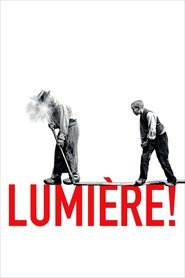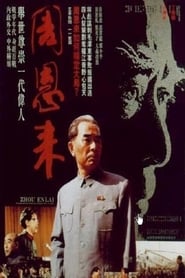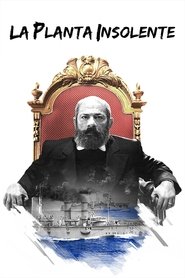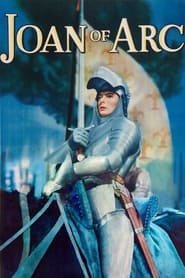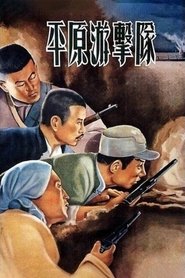Popular History Movies on Tub Tv - Page 351
-
Hammer
2024
Hammer
2024
star 2Cartagena, Colombia – 1666. An enslaved woman accused of witchcraft comes face to face with evil incarnate and a Faustian bargain for her freedom while imprisoned in the bowels of the Palace of the Inquisition. -
Liberté
2021
Liberté
2021
Britain's first Muslim war heroine is tested to the limit as she faces her brutal captors in Nazi-occupied Paris for the last time. -
阳明先生传奇
2018
阳明先生传奇
2018
-
Lumière!
2016
-
Cowardly samurai squad
1935
The story of Dangonosuke, a boy samurai rescuing a woman from a villain, is told comically. -
Zhou Enlai
1992
-
Rabbit in the Moon
1999
Rabbit in the Moon
1999
star 2Like many Japanese Americans released from WWII internment camps, the young Omori sisters did their best to erase the memories and scars of life under confinement. Fifty years later acclaimed filmmaker Emiko Omori asks her older sister and other detainees to reflect on the personal and political consequences of internment. From the exuberant recollections of a typical teenager, to the simmering rage of citizens forced to sign loyalty oaths, Omori renders a poetic and illuminating picture of a deeply troubling chapter in American history. -
S.O.S. Titanic
1980
S.O.S. Titanic
1980
star 5.9The Titanic disaster as seen through the eyes of one couple in each of the three classes on board. -
La planta insolente
2017
La planta insolente
2017
The film reproduces the historical moment when Cipriano Castro, then president of Venezuela, proclaimed: "The insolent plant of the foreigner has desecrated the sacred soil of the fatherland!" While the coasts were invaded by imperial forces in 1902. -
A Prominent Patient
2017
A Prominent Patient
2017
star 5.9In 1939, Czech diplomat Jan Masaryk flees to the United States to escape his recent past: Germany has invaded Czechoslovakia and he is now a man with no nation; because, as the Czechoslovak ambassador in London, he failed to win the support of the British and could not avert the fall of his country and the outbreak of the World War II. -
Joan of Arc
1948
Joan of Arc
1948
star 6.1In the 15th Century, France is a defeated and ruined nation after the One Hundred Years War against England. The fourteen-year-old farm girl Joan of Arc claims to hear voices from Heaven asking her to lead God's Army against Orleans and crowning the weak Dauphin Charles VII as King of France. Joan gathers the people with her faith, forms an army, and conquers Orleans. -
Baraguá
1986
-
Willem and Frieda: Defying the Nazis
2023
star 7.5Willem was an artist who lived openly as a gay man at a time when few did. Frieda was a well-connected musician who became the first woman to lead an orchestra. We learn of their early lives and the selfless decisions that informed their devotion to the anti-Nazi cause, often at great personal risk. The gentle revelation of these extraordinary lives is gradually revealed through archive footage, skillfully combined with photographs and interviews with experts, journalists and family members. -
Guerrillas on the Plain
1955
star 6A guerrilla group led by Li Xiangyang are ambushed by the Japanese invasion army during the War of Resistance. -
Azu
2013
Azu
2013
star 6.91780, a group of slaves flee from a sugar cane hacienda. As they are pursued by Don Manuel Aguirre, obsessed landowner who has fixed his eyes on Azu, the beautiful slave with an ancestral destiny. -
Conspiracy
2001
Conspiracy
2001
star 7.3At the Wannsee Conference on January 20, 1942, senior Nazi officials meet to determine the manner in which the so-called "Final Solution to the Jewish Question" can be best implemented.
 Netflix
Netflix
 Amazon Prime Video
Amazon Prime Video
 Apple iTunes
Apple iTunes
 Apple TV Plus
Apple TV Plus
 Disney Plus
Disney Plus
 Google Play Movies
Google Play Movies
 Paramount Plus
Paramount Plus
 Hulu
Hulu
 HBO Max
HBO Max
 YouTube
YouTube
 fuboTV
fuboTV
 Peacock
Peacock
 Peacock Premium
Peacock Premium
 Amazon Video
Amazon Video
 The Roku Channel
The Roku Channel
 AMC+
AMC+
 Kocowa
Kocowa
 Hoopla
Hoopla
 The CW
The CW
 Vudu
Vudu
 Starz
Starz
 Showtime
Showtime
 PBS
PBS
 Pantaflix
Pantaflix
 FXNow
FXNow
 Tubi TV
Tubi TV
 Kanopy
Kanopy
 Comedy Central
Comedy Central
 Crunchyroll
Crunchyroll
 Microsoft Store
Microsoft Store
 Redbox
Redbox
 Sun Nxt
Sun Nxt
 ABC
ABC
 DIRECTV
DIRECTV
 Crackle
Crackle
 Fandor
Fandor
 Plex
Plex





